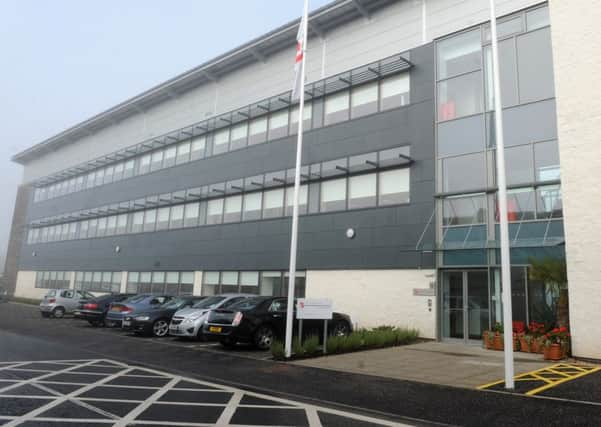Universal Credit: Council house rent arrears in East Dunbartonshire leap to £422,000


This is almost double the £234,858 rent arrears owed locally in October 2017, revealed then by the Kirkintilloch Herald and also directly attributed to UC.
The latest figures, released as a result of an investigation by a JPIMedia team, also reveal four claimants have been evicted from their homes in the past two years.
Advertisement
Hide AdAdvertisement
Hide AdOn average, a claimant in arrears owes £1,052, more than double the amount owed by a Housing Benefit claimant in arrears.
Meanwhile, Universal Credit claimants also failed to pay £436,000 in council tax last year.
East Dunbartonshire, along with councils across the country are struggling to reclaim the cash owed to them in rent arrears by Universal Credit claimants as they are no longer in control of the process, experts have warned.
Local authorities, who administered housing benefit payments before UK Government welfare reforms, previously had the power to negotiate directly with tenants who had fallen behind with their rent.
Advertisement
Hide AdAdvertisement
Hide AdBut that ability was removed by the introduction of Universal Credit which sees claimants given a lump sum payment instead of several individual benefits.
Now local authorities must complete a lengthy process with the Department for Work and Pensions which could eventually lead to an individual’s benefits cut to pay some of the arrears back.
JPIMedia Investigations spoke to staff across local authorities, Government quangos and Citizens Advice on the issue.
“If arrears keep increasing it will put a lot of pressure on the finances of local authorities and housing associations,” said Rob Gowans, of Citizens Advice Scotland.
Advertisement
Hide AdAdvertisement
Hide Ad“We don’t know how long-term they will be able to manage this.”
As rent arrears are debt they are, in theory, recoverable. But in reality, many councils and housing associations are already struggling to recoup them.
The DWP has told councils that costs associated with Universal Credit will come down in the long-term as administration improves and recipients get used to the system.
But even local authorities which were among the first to adopt Universal Credit have not seen arrears drop back down to pre-2012 levels.
Advertisement
Hide AdAdvertisement
Hide AdInstead councils are investing substantial amounts to mitigate the impact.
In Glasgow, Scotland’s largest local authority, that meant an additional £2m being spent each year to employ more specialist staff such as housing officers and support staff.
One local authority expert said: “Councils are no longer in control of the process of getting their debts back.
“It’s another pressure. It’s increased costs and made revenues less secure. And all at a time councils are already struggling.”
Advertisement
Hide AdAdvertisement
Hide AdThe Kirkintilloch Herald revealed in an article back in 2017 that a staggering 92 per cent of East Dunbartonshire tenants on Universal Credit (UC) were in rent arrears – £234,858 – and crisis grants had risen sharply.
The amount the council had to give to cash-strapped residents rose by almost 50 per cent, people on UC accounted for more than a quarter of all rent arrears owed to the council and Strathkelvin and Bearsden SNP MSP Rona Mackay made another appeal for an urgent halt to the accelerated roll-out of the controversial new system.
A year later, in 2018, the Herald reported that in East Dunbartonshire the controversial new welfare entitlement system had sparked a further 15 per cent rise in rent arrears, and was set to be “radically” extended.
There was an 87 per cent increase in crisis grants issued in the local pilot areas used for the new system, as opposed to just nine per cent nationally.
Advertisement
Hide AdAdvertisement
Hide AdThe Herald reported a 70 per cent increase in requests at citizens advice bureaus from claimants about access to food banks, compared with a national increase of three per cent. While more than a third of claims had to wait more than six weeks to receive their first payment.